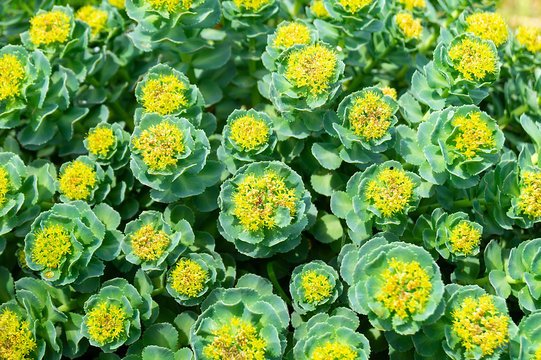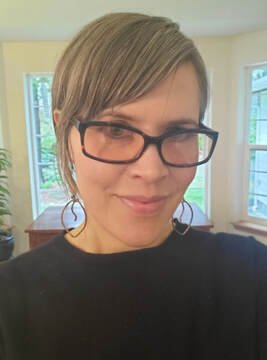
Is Rhodiola the Herbal Alternative to ADHD Medication?
As a beneficial herb for ADHD, part of rhodiola’s effectiveness has been correlated to its ability to stimulate dopamine, serotonin and norepinephrine, and to limit excessive release of cortisol.
written by Arika Rapson, MAIf you really want to irk an herbalist, ask them something like “What’s the herbal equivalent of Zoloft?” It’s not that they won’t be delighted by your interest in herbal medicine, but the question itself has a built in assumption that pharmaceuticals and herbs operate in the same way, and that one can simply be used in place of the other. The reality is not that simple, but don’t let that discourage you. We just need to shift our perspective a bit and be open to seeing herbs differently than we see pharmaceuticals.
Right now, the ‘herbal equivalent’ question is coming up a lot in regards to treating ADHD amidst the prolonged drug shortage. If you are one of the millions of people who have been affected by this shortage, the struggle to be able to concentrate well enough to consistently complete schoolwork or meet work deadlines, manage your household, and keep up with the daily demands of life has been real. The uncertainty of not knowing if you will get your meds from month to month is an added stressor that adds cumulative strain.
So why not turn to Google and see what a search for herbal alternatives to Adderal or Ritalin comes up with? What’s the harm? To be clear, I am all in favor of exploring herbal options whenever possible. But the Google search for an instant pharmaceutical replacement steered by AI may not be the place to start.
For one thing, trying to find an herb to help with one particular symptom is a bit like choosing a housemate based on their willingness to mow the yard for you. Sure, you may have grass allergies and need a roomie who can do that job, but you’re going to be living with that person. Are you compatible in all the other ways that matter when you are going to share your home with someone? Plants are complex entities too. It takes time to get to know them and figure out if you are right for each other.
Katja Swift (Co-Founder and Director of the CommonWealth Holistic Herbalism school in Boston) prefers to begin with looking at what she calls ‘the Four Pillars’ of health—restorative sleep, nourishing food, abundant movement and manageable stress. You get those things in balance first, then you see what gaps remain and start working with herbs that can add additional support.
That makes a lot of sense when you think about it. When I talked to an AuDHD homeschooling mother of five about things she had tried in lieu of pharmaceuticals, she was quick to point out that “If I haven't slept enough, then nothing I do is going to make my brain kick in.” The reality is, you can’t use herbs in lieu of self-care and expect that they are going to solve everything. Starting with a strong foundation should always be the first step.
You may be wondering how to get started. But keep in mind that what we are discussing here is not medical advice. Do talk to your doctor about what’s right for you and remember there is not a ‘one-size-fits-all’ set of instructions to follow. But from the herbalist perspective, Katja is a big believer in plenty of sleep (maybe 9 hours or so for adults and much more for teens). And as general rule of thumb for neurodivergent folks, she is in favor of things like a mineral rich diet (magnesium in particular for nerves) and plenty of vitamin d and b vitamins. Avoiding gluten and dairy is worth looking into as well. Those are some good starting steps (*see note at end of article).
Once you have made the needed adjustments in your lifestyle, you may find that you no longer have the need for additional support. The Four Pillars are medicine, after all, and the changes you make can lead to dramatic results.
But if you have some remaining gaps, there definitely are some plants that have a reputation for improving focus and cognitive function. Over the years, Katja has seen clients who were unable to continue with Ritalin, either because of not having health insurance or the side effects getting too bad. She notes that Rhodiola rosea can be a good match for these folks.
Rhodiola is one of those herbs that has been used traditionally for thousands of years that has also had the benefit of 100’s of scientific studies. It is perhaps most commonly known as an adaptogen for stress, although it is also pretty popular amongst athletes for stamina and improved performance. As a beneficial herb for ADHD, part of its effectiveness has been correlated to its ability to stimulate dopamine, serotonin and norepinephrine, and to limit excessive release of cortisol.
I talked to some other ADHDers who have tried it out to see what they thought. “One weekend I skipped my morning rhodiola and found a big difference after two weeks of drinking the tea every morning. It was harder for me to concentrate and attack my daily to-do list,” says Cee of Massachusetts.
Ashlynn, another woman I spoke with, has tried a variety of pharmaceuticals over the years for her ADHD and autism. Vyvanse was her main medication for 6-7 years, but the side effects became unbearable over time. Recently she started incorporating herbs such as ginseng, ginkgo and lion’s mane, but has found rhodiola to be the most effective. Plus, it has been a lot gentler on her system than the pharmaceuticals and is free of the heavy side effects.
Ashlynn adds: “I think, like everything, our medicinal needs ebb and flow with us as we grow and change and learn and unlearn. What we are willing to tolerate changes, our capacity changes, how we choose to care for our mind-body changes, everything changes. There was a time in my life where Vyvanse was a necessity, and that time has now passed. Here in the present, I find rhodiola to be the support I lean toward on the days where I really need it, but I assume that that will eventually change also.”
In terms of side effects, one thing almost everyone mentioned is how drying it can be. For this reason, folks almost always use it in conjunction with a demulcent (moistening) herb. So maybe you sip a little linden or marshmallow tea throughout the day to balance out that dryness. It is also a stimulant, so probably not the best thing to take before bedtime. If, for example, you were taking rhodiola in the morning and at lunch time, you could try switching to less stimulating herbs that still support cognitive function (like gingko or tulsi) in the evening.
Another reason to pair herbs and not just work with rhodiola exclusively is that it has been recently added to the list of endangered species. It only grows in arctic conditions, and climate change is having a pretty major impact on the arctic. So your first thought might be to not use it at all. And I absolutely agree if it’s coming from the wild. But there are farmers who are cultivating it sustainably and that is the way to go. Look for companies like Mountain Rose Herbs that are upfront about their practices, and if you are unsure, it’s best to play it safe and keep looking.
You can also consume less of the plant by using it in the form of a tincture. Making tea or taking capsules requires larger quantities of the herb, which is unnecessary. Taking a tincture is also the most convenient way to take it! You could also try using it intermittently or on an as needed basis. This is a good idea anyway since there aren’t scientific studies for using it beyond 12 weeks.
So is rhodiola an effective herbal equivalent to your ADHD medication? It may not be the best way to ask that question, but it is a plant worth getting to know better. For some people, and in conjunction with the right combination of other herbal allies and self-care practices, rhodiola can be a valuable nutritional support for ADHD.
NOTE: Some of the material on rhodiola presented here by Katja Swift is from the class Neurological & Emotional Health, from the segment ADD, ADHD, & the Autistic Spectrum, from CommonWealth Holistic Herbalism.
DISCLAIMER: The information provided here is not medical advice and is intended for informational and educational purposes only.
arika rapson
Arika Rapson, MA, is a neurodivergent coach and herbal educator. She lives on the edge of the woods on a small island in the San Juans. As a neurodivergent woman, plant medicine and wildcrafting have been her biggest helpers for emotional regulation and physical well being. Read her blog Divergent by Nature on her website, and find her on Instagram here.
Subscribe to the Newsletter!
We’ve moved our newsletter to Substack where we’ll be sending weekly letters curating the best neurodivergent-themed content on the internet in addition to updating you on all things (DI)VERGE. It’s free! Sign up below!
Want to share your work? Submissions are open!



